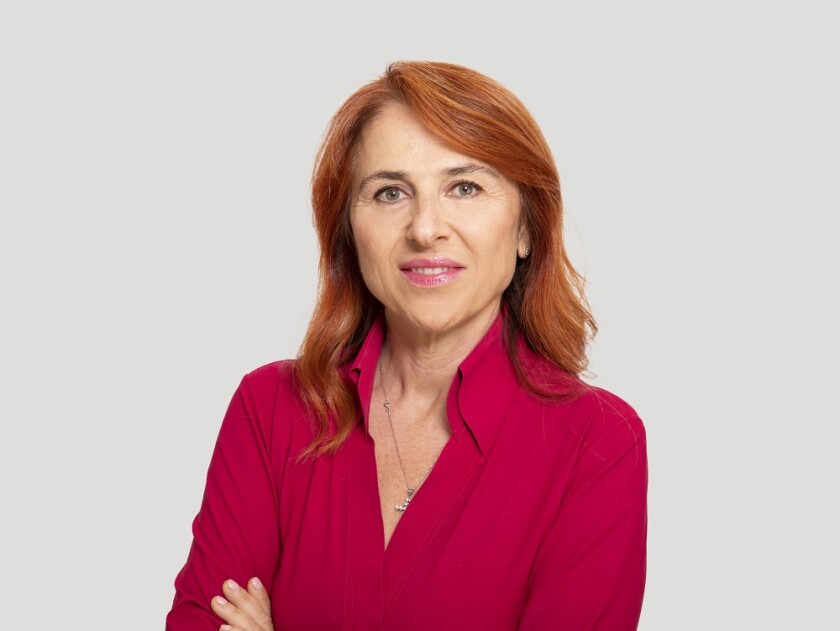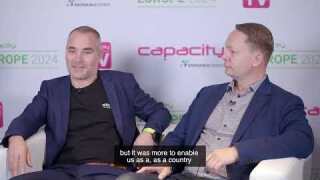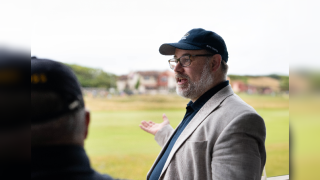This interview was carried out before Elisabetta Romano was named as the new chair of the ITW Global Leaders’ Forum.
It is less than two years since Elisabetta Romano took over the challenging role of being CEO of Sparkle, TIM’s international arm. And already she’s developed a, shall we say, sceptical view about the carrier industry. “The main issue in the telecoms industry is the investment return,” she tells me from Rome. “We do a job that is strategic for our countries, we are enablers for the digital world – and the pandemic has shown how relevant this is. But we are not monetising as much as we deserve for the investment we make.”
Challenging not just because of that. But there has been something of a revolving door into – and out of – the leadership suite at Sparkle. Romano has at least outlived her predecessor in the role, Mario di Mauro, who lasted 17 months. In August 2020 she became the ninth CEO of Sparkle in ten years – which makes the average time anyone’s head the post between 2010 and 2020 just 13 months.
Romano is aware of that, though she’s sensible enough not to say it. But she is aware of the “trend of consolidation” in the industry, “with many players and a high pressure on prices”, she says. “Not all carriers can survive.”
What does that mean for Sparkle? “We expect to see some organic growth and some M&A.” She looks around and notes that what’s been happening is that investment funds have been acquiring carriers. We don’t need to list thebm here: anyone at ITW will be able to point to what’s happened in the industry over the past few years.
Romano hopes for something better. “For a real consolidation the dynamics [should] involve several carriers to better exploit our assets and search for synergies and economy of scale,” she says. Much more, that is, than private equity funds buying up wholesale carriers.
For Sparkle, though, Romano does not envisage that. “Our ambition is to grow and evolve, leveraging our physical and human assets,” she says.
Romano has spent most of her career in software, a computer scientist, who spent almost 20 years in Ericsson, in Rome until 2009 and then in Stockholm and, for three years, in Santa Clara. Then, in April 2018 she became CTO of TIM, for just over two years before moving to Sparkle as CEO.
She didn’t get to ITW in 2021, so “it will be my first ITW, though I’ve been in telecoms for more than 30 years”, she says. At Ericsson, was account manager for selling IT – or OSS/BSS as the telecoms industry calls it – to TIM, and then was key account manager for Wind, since merged with Three in Italy.
She welcomes the idea of coming to the US for ITW. “As the industry evolves, all these conferences can be an arena for discussing trends and developments,” she says. But, perhaps recalling her role in the OSS/BSS business persuading telecoms operators to transform their processes, she notes sceptically, “telecoms is probably the last sector to transform. There is a lot of work to be done, starting from automation through a full digitisation of processes.”
As a technologis, she says, “I firmly believe technology, not only financial KPIs, is important. Technology is the enabler of business and a differentiating driver. I’m proudly a tech person. I proudly protect my tech background.” Telecoms needs “to find a way to succeed and transform”, she adds.
So as a technologist who’s now a CEO, how do the different sides of Elisabetta Romano come together at the top of Sparkle? Day to day, she says “one third my technology background, one third my leadership background and one third my business background. Technology and business, but also leadership, are in every action. That has been helping me – the combination between technology and business.”
One of her heroes in telecoms was the late Mauro Sentinelli a former leader of what’s now TIM who “was able to combine a technology and business mindset”, she says. “I had the privilege to meet him several times and I got inspired by him.” He was a member of the original GSM group, after which what we now think of as 2G technology was named. He later won a lifetime achievement award from the GSMA.
Today, though, says Romano, after a couple of decades of centralisation in telecoms, technological change is becoming more distributed. “Telecoms is by definition a distributed business. It’s where we are going, with Web3 and the Metaverse, towards decentralised intelligence, and there is more need of a trusted and distributed player. A telco has the chance, carriers have the chance, to play an important role in this.”
And in all this, “I am personally involved. I am curious. I like to keep my technological knowledge updated and I keep learning. I need to be aware of the developments,” she says. My personal experience has been positive. We need to transform many things to become a truly data driven company. This is a long but exciting journey.”






